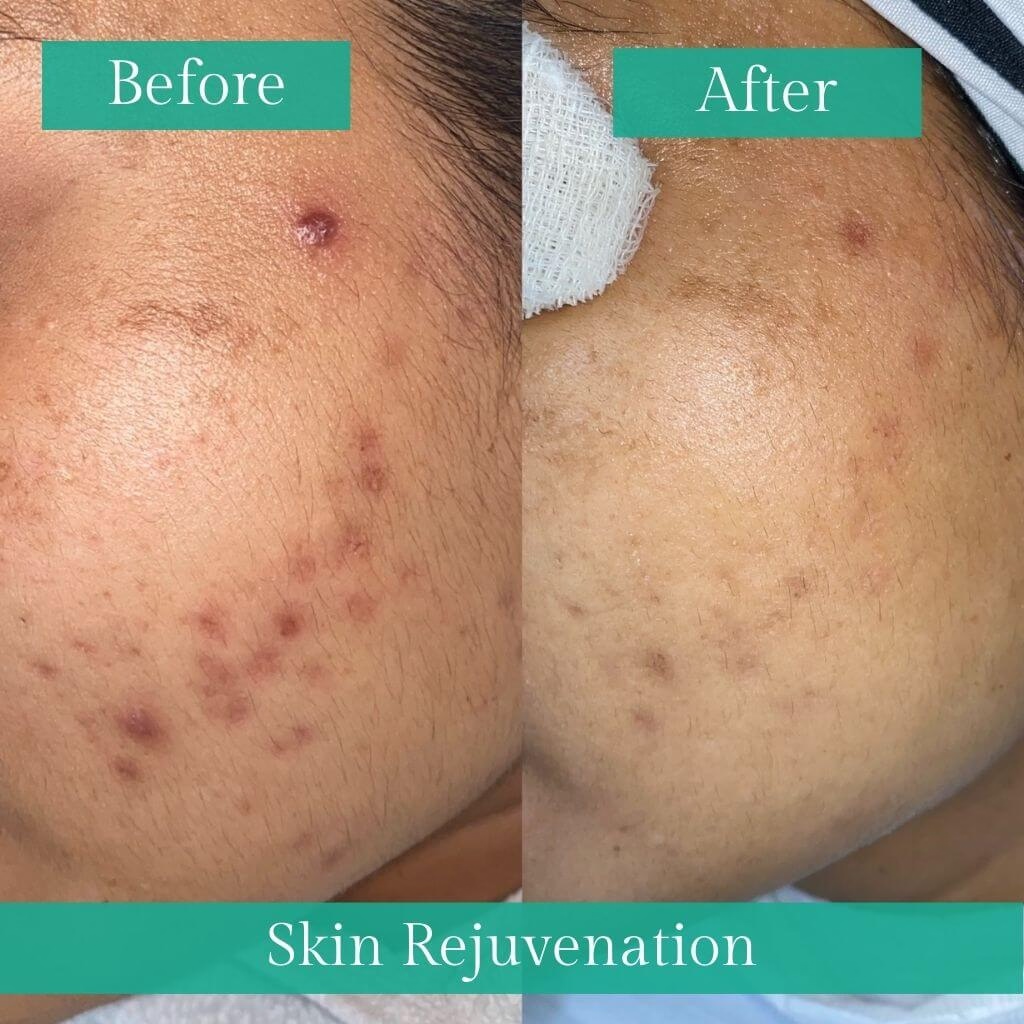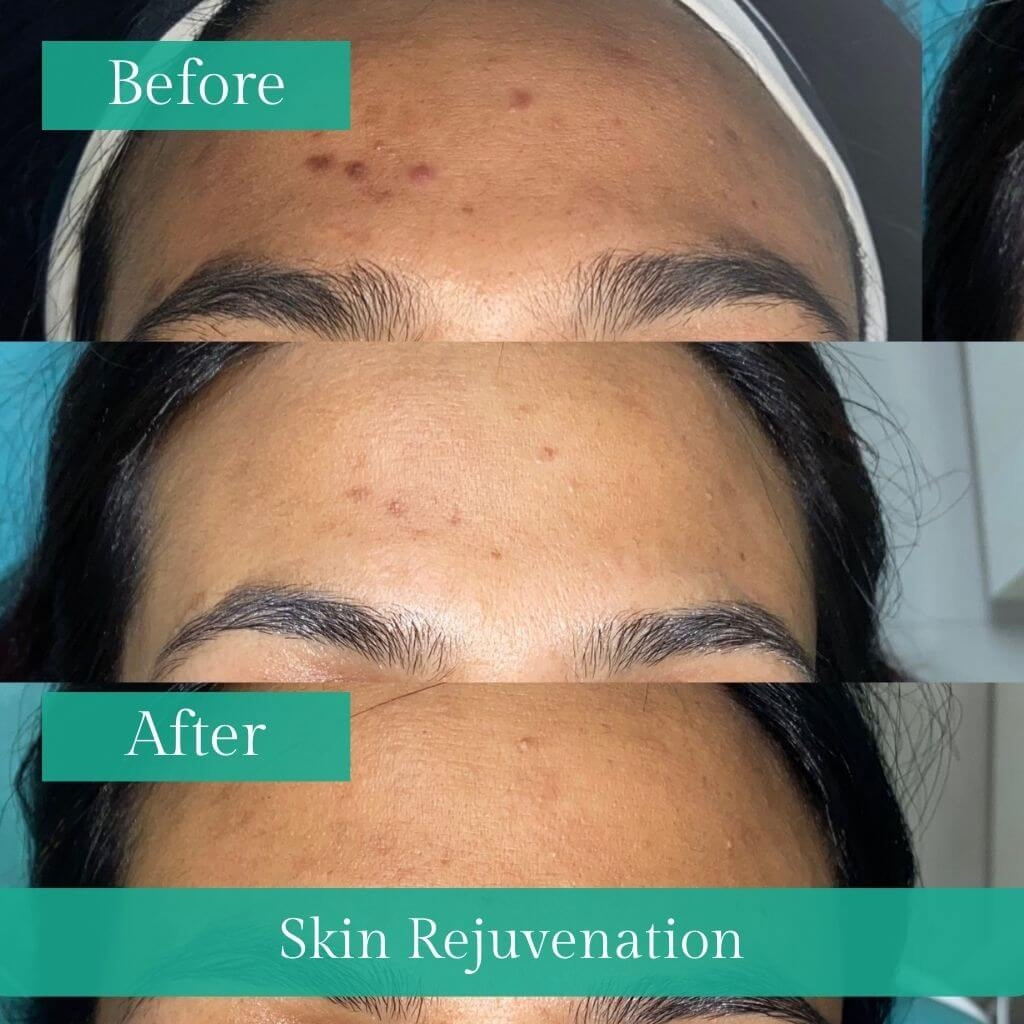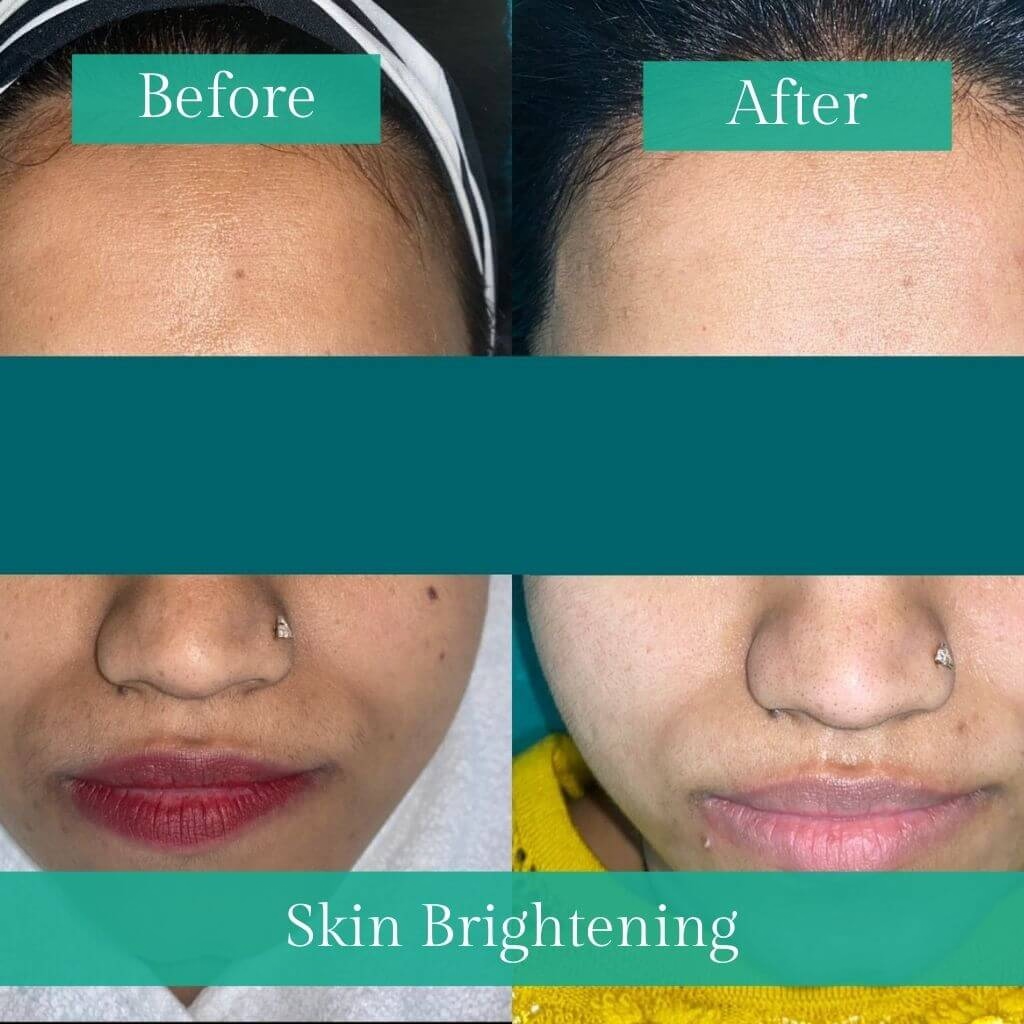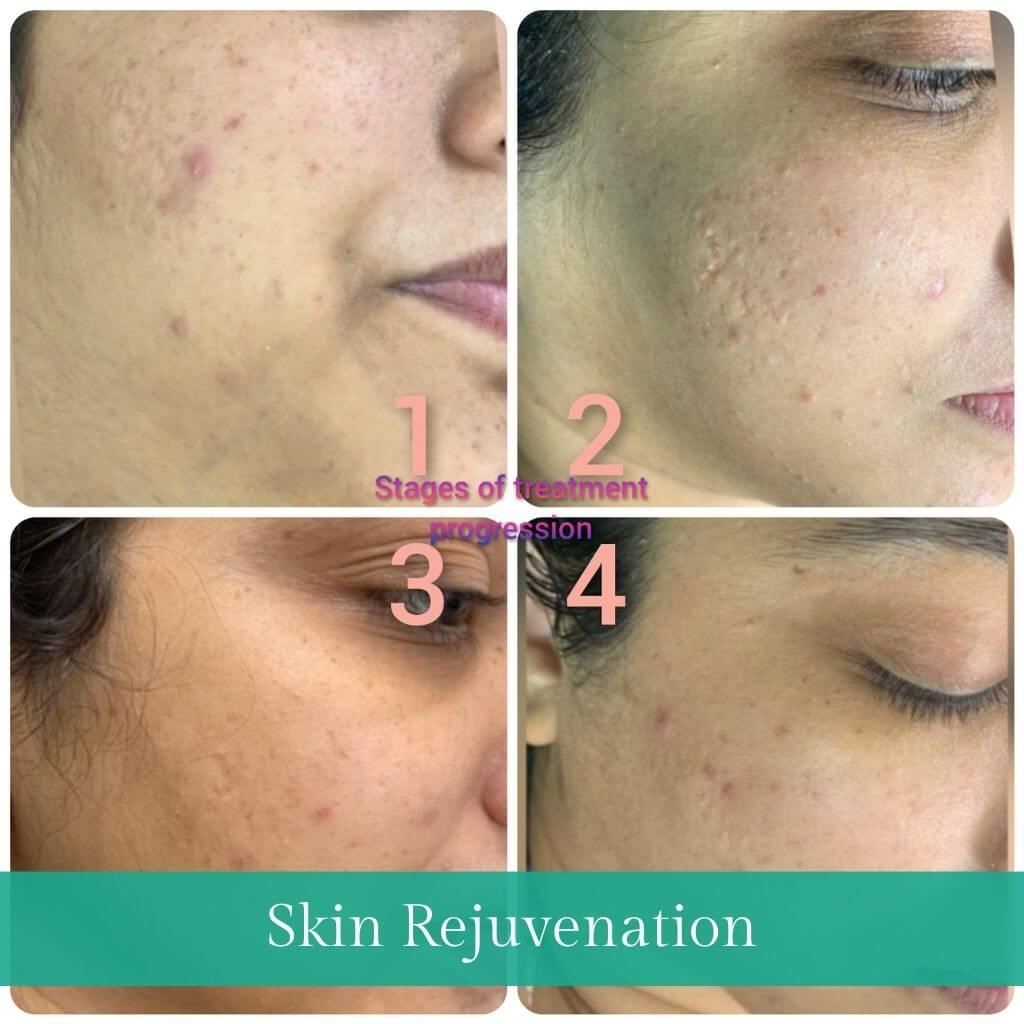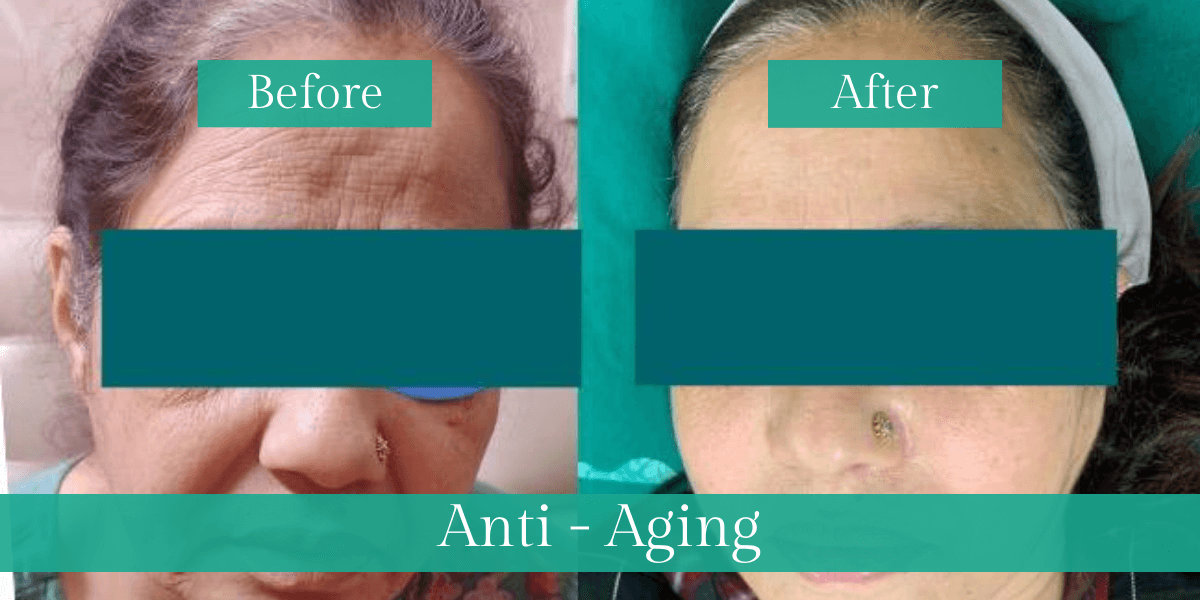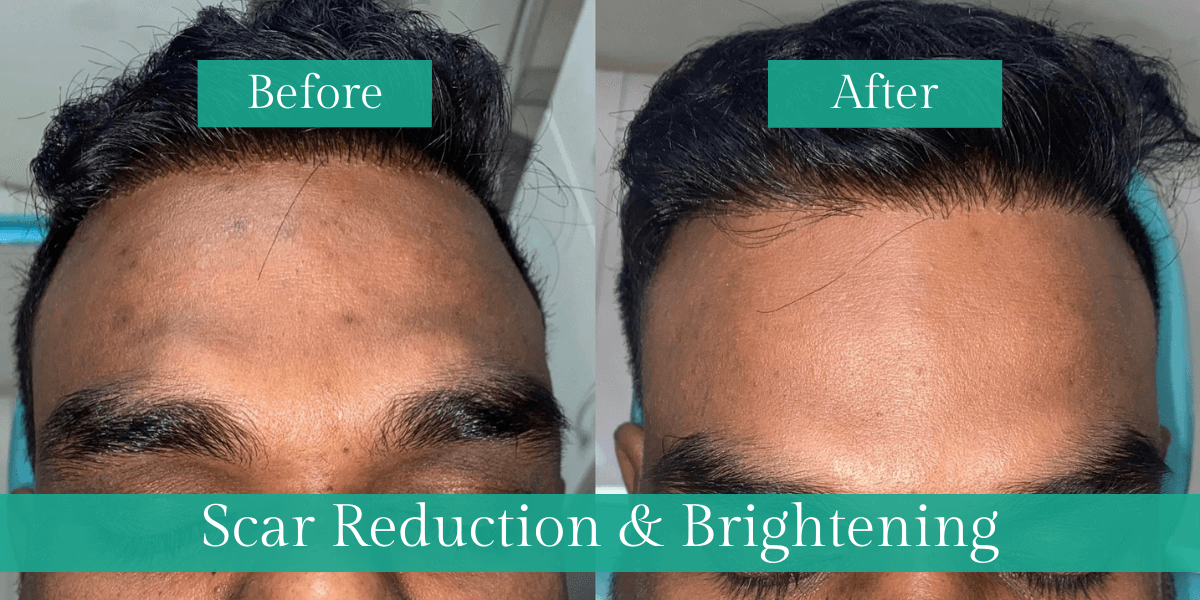Through various therapeutic or cosmetic interventions, skin improvement refers to enhancing skin health, texture, tone, and overall appearance. It encompasses a range of treatments and practices aimed at promoting skin vitality, reducing imperfections, and achieving a more youthful and radiant complexion.
Skin improvement may involve medical dermatological procedures, such as chemical peels, laser therapies, topical medical-grade products, and cosmetic treatments like dermal fillers, Botox, and non-invasive rejuvenation techniques.
Why is Skin Improvement done?
Aesthetic Enhancement
Many seek skin improvement to achieve a more youthful, radiant, and attractive appearance by reducing fine lines and wrinkles and addressing skin imperfections.
Acne Scars
Skin enhancement procedures can effectively reduce the visibility of acne scars, leading to smoother skin texture and alleviating the emotional toll left by previous acne issues.
Hyperpigmentation
Individuals with uneven skin tone or areas of hyperpigmentation may seek skin improvement to achieve a more balanced complexion.
Rejuvenation
Skin improvement techniques aim to rejuvenate the skin, reducing signs of ageing and promoting a refreshed and revitalised look.
Healthier Skin
Some seek skin improvement to promote overall skin health, addressing concerns like sun damage, dehydration, or dullness.
Preventive Care
Skin improvement can be part of a proactive skincare routine, helping prevent future signs of ageing or maintaining skin health.
Special Occasions
Some individuals seek skin improvement treatments before significant life events or milestones, such as weddings or important gatherings.
Risks of Skin Improvement
Skin Sensitivity
Some treatments can lead to increased skin sensitivity, redness, or irritation, especially in individuals with sensitive skin.
Allergic Reactions
In some individuals, specific procedures or products can induce allergic reactions, leading to symptoms like skin rashes, itching, or swelling.
Hyperpigmentation
Improperly administered treatments, such as chemical peels or lasers, can cause temporary or permanent hyperpigmentation (skin darkening).
Scarring
Invasive procedures like deep chemical peels or aggressive laser treatments risk scarring, especially in individuals prone to keloids or poor healing.
Undesired Results
In some cases, treatments may yield different results, leading to dissatisfaction with the outcome or unexpected side effects.
Aftercare Tips
- Ensure you apply sunscreen with a minimum SPF of 30 and wear protective clothing to shield your skin from direct sunlight.
- Use a mild, non-abrasive cleanser for gentle cleansing.
- Keep your skin well-hydrated with a non-comedogenic moisturiser.
- Avoid harsh skincare products, peels, or treatments immediately after the procedure.
- Refrain from touching or picking at treated areas to prevent infection or irritation.
- Avoid excessive heat from saunas, hot tubs, hot showers, and vigorous exercise in the first 24-48 hours.
- Follow any recommended post-treatment skincare products for optimal results.


